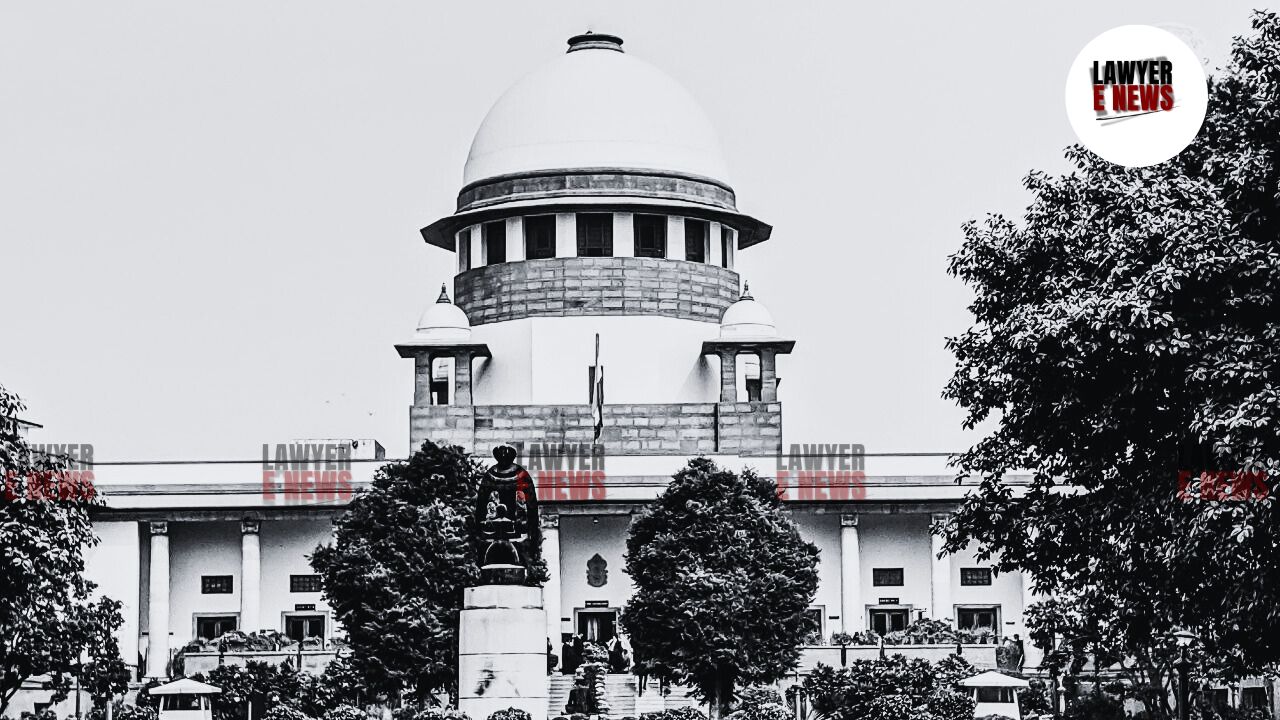-
by Admin
15 February 2026 2:36 AM



Supreme Court of India addressed a decades-old case marred by judicial oversight and systemic delays. The Court held that the appellant was a juvenile at the time of the offense and set aside his sentence, directing his immediate release after 25 years of incarceration. The Court also emphasized the role of juvenile justice in reform and reintegration, urging legal and social support for his rehabilitation.
The case revolved around Om Prakash, who was convicted of culpable homicide in 1994. During trial and subsequent appeals, the appellant repeatedly raised the plea of juvenility, submitting documents, including a school certificate and a medical age assessment, to substantiate his claim. However, both the trial court and appellate courts, including the High Court, dismissed his plea, often relying on irrelevant or insufficient evidence.
After exhausting all legal remedies, including a curative petition and a mercy petition, the appellant remained in custody despite evidence confirming his age as 14 at the time of the offense. This persistent judicial oversight led the appellant to file a fresh writ petition under Article 226, challenging the denial of his juvenility claim. The High Court dismissed the petition, stating that the case had attained finality. Aggrieved, the appellant approached the Supreme Court.
The Supreme Court observed that the Juvenile Justice (Care and Protection of Children) Act, 2015 allows the plea of juvenility to be raised "at any stage," even after the case has been disposed of. The Court underscored that the doctrine of juvenility is a constitutional mandate, rooted in Articles 14 and 15(3) of the Constitution, which obligates the state to treat children as a vulnerable group deserving special protection.
The Court noted that the lower courts had erred in dismissing the appellant’s juvenility plea. Despite clear documentary evidence, including a school certificate and a medical age determination report, the plea was repeatedly ignored. The Court remarked:
“When the plea of juvenility was raised, it should have been dealt with under the existing laws at the relevant point of time, especially when there exists a tacit and clear admission as to the age of the appellant.”
The Supreme Court reaffirmed the principle that courts must act as guardians for juveniles in conflict with the law. It emphasized that juvenile courts must prioritize rehabilitation and reintegration rather than punishment. Quoting from the judgment:
“A juvenile court assumes the role of an institution rendering psychological services. It must forget that it is acting as a court and must don the robes of a correction home for a deviant child.”
Recognizing the appellant’s long incarceration of 25 years, the Court directed the Uttarakhand State Legal Services Authority to facilitate his reintegration into society. The Court mandated that the appellant be assisted in securing shelter, livelihood, and access to welfare schemes under Article 21 of the Constitution.
The Supreme Court allowed the appeal, setting aside the sentence imposed in excess of the upper limit prescribed for juveniles under the relevant Acts while maintaining the conviction. The Court directed the appellant’s immediate release, noting:
“The time which he has lost, for no fault of his, can never be restored. The appellant deserves an opportunity to reintegrate into society with dignity.”
Further, the Court instructed the legal services authority to actively assist in his rehabilitation, ensuring that his right to livelihood and shelter is upheld.
This landmark judgment underscores the Supreme Court's commitment to the principles of juvenile justice and constitutional morality. It highlights the need for judicial vigilance in ensuring that procedural errors do not deprive individuals of their fundamental rights.
Date of Decision: January 8, 2025
